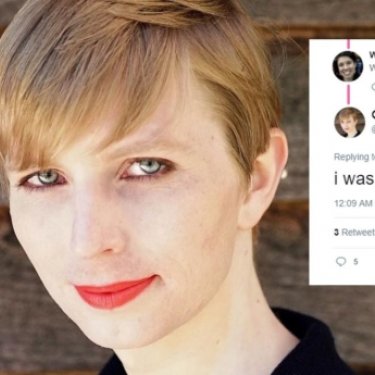RSF urges Canadian government to allow Chelsea Manning to enter the country, improve whistleblower protection

Reporters Without Borders (RSF) is dismayed to learn that American whistleblower Chelsea Manning was denied entry into Canada last month based on her criminal record in the United States. RSF calls on the Canadian government to allow Manning to enter the country as part of a broader effort to improve whistleblower protections in Canada.
On September 22, prominent American whistleblower Chelsea Manning was barred entry to Canada by the country’s Border Services Agency. While it is not uncommon for foreign nationals to be barred entry into Canada for past criminal offences such as driving while intoxicated, Manning’s case shines a spotlight on the country’s anti-whistleblower environment. The decision to bar her entry into the country is based on a conviction and prison sentence that RSF and other press freedom and free expression groups have repeatedly criticized as disproportionate and unjust.
In a memo she shared on twitter, the apparent rationale behind her denial of entry was her conviction under the American Espionage Act for leaking classified and sensitive documents to WikiLeaks for which she was sentenced to 35 years in prison, though President Barack Obama commuted her sentence days before leaving office in January of this year. Local advocacy group and RSF partner Canadian Journalists for Free Expression (CJFE) expressed their concern with Manning’s denial of entry in a statement published last week which urged the government to allow her to travel to Canada and share her experience as a whistleblower.
“RSF calls on the Canadian government to allow Manning to enter the country as part of a broader effort to improve whistleblower protections in Canada, says Margaux Ewen, Advocacy and Communications Director for RSF’s North America Bureau. “Blowing the whistle on government wrongdoing must be protected as a public service in any democratic society, and this certainly includes Canada.”
Toothless whistleblower protection in Canada
Many would-be whistleblowers in the country have been effectively discouraged from revealing government wrongdoing because of the professional, financial and emotional toll such an act can take on them.
CJFE has reported multiple incidents of retaliation against whistleblowers in Canada over the past decade, as well as Ryerson University’s Centre for Free Expression (CFE). One such case is that of Sean Bruyea, a retired Canadian intelligence official who suffered post-traumatic stress disorder after serving in the Gulf War of 1991-92. Bruyea battled with Canada’s Veterans Affairs as a vocal critic of the department’s New Veterans Charter initiative, both in the media and before Parliament. Bruyea was soon victim to significant retaliation after he learned that officials involved in his medical care were linking his advocacy to his condition, and were providing information about his medical treatment and status to policy officials responsible for responding to his advocacy campaign. The federal Privacy Commissioner reported at the time that since at least 2005, Bruyea and other veterans advocates had become the target of a concerted campaign by Veteran Affairs officials, which included the withholding of payment of medical travel claims to discourage their advocacy.
Earlier this year, RSF and CJFE denounced the National Energy Board’s hiring of a private investigation firm to track down a National Observer journalist's sources. The NEB’s witch hunt for a reporter’s sources is just one example of how government bodies view the very act of whistleblowing in Canada.
In 2016, CJFE gave Canada an F for its protection of whistleblowers, stating that protections only exist on paper: “the tribunal system established under the [Harper] government has been completely ineffective, and [Trudeau’s government] has shown no interest in reforming it, despite the fact that a few small policy changes could turn it into an effective replica of tribunal systems in other countries. Even worse, Canada has no protections for whistleblowers in the private sector… [creating] a climate where those who see wrongdoing at their jobs, whether in the public or private sector, have no incentive to come forward, and a very rational fear that their careers will be ruined if they do. Without these people coming forward, Canadians are too often left in the dark about government and corporate corruption.”
The protections Canada has enacted on paper thus far refer to the Public Servants Disclosure Protection Act (PSDPA) adopted in 2006 under former Prime Minister Stephen Harper. Under this act, a public sector employee must first report wrongdoing to a commissioner who then would begin an investigation into the reported information. The investigation could take up to two years and in the meantime, the whistleblower’s identity could be revealed as the information exposed is frequently only known by a limited number of employees. The whistleblower is then subject to retaliation from their employer such as loss of employment or even professional blacklisting, without any real protection against retaliation provided for under the PSDPA. If the commissioner investigating the disclosure finds that the whistleblower was in fact retaliated against by their employer, the case can then be referred to a tribunal. However, the whistleblower must prove that what they experienced at the hands of their employer was indeed retaliation for revealing wrongdoing, which frequently exposes them to heavy litigation costs, putting them at great disadvantage when compared with their employer. According to CJFE, the tribunal process is so ineffective that not a single case has ever successfully awarded a remedy to a whistleblower who has faced retaliation.
Canada ranks 22nd out of 180 countries in RSF’s 2017 World Press Freedom Index.



